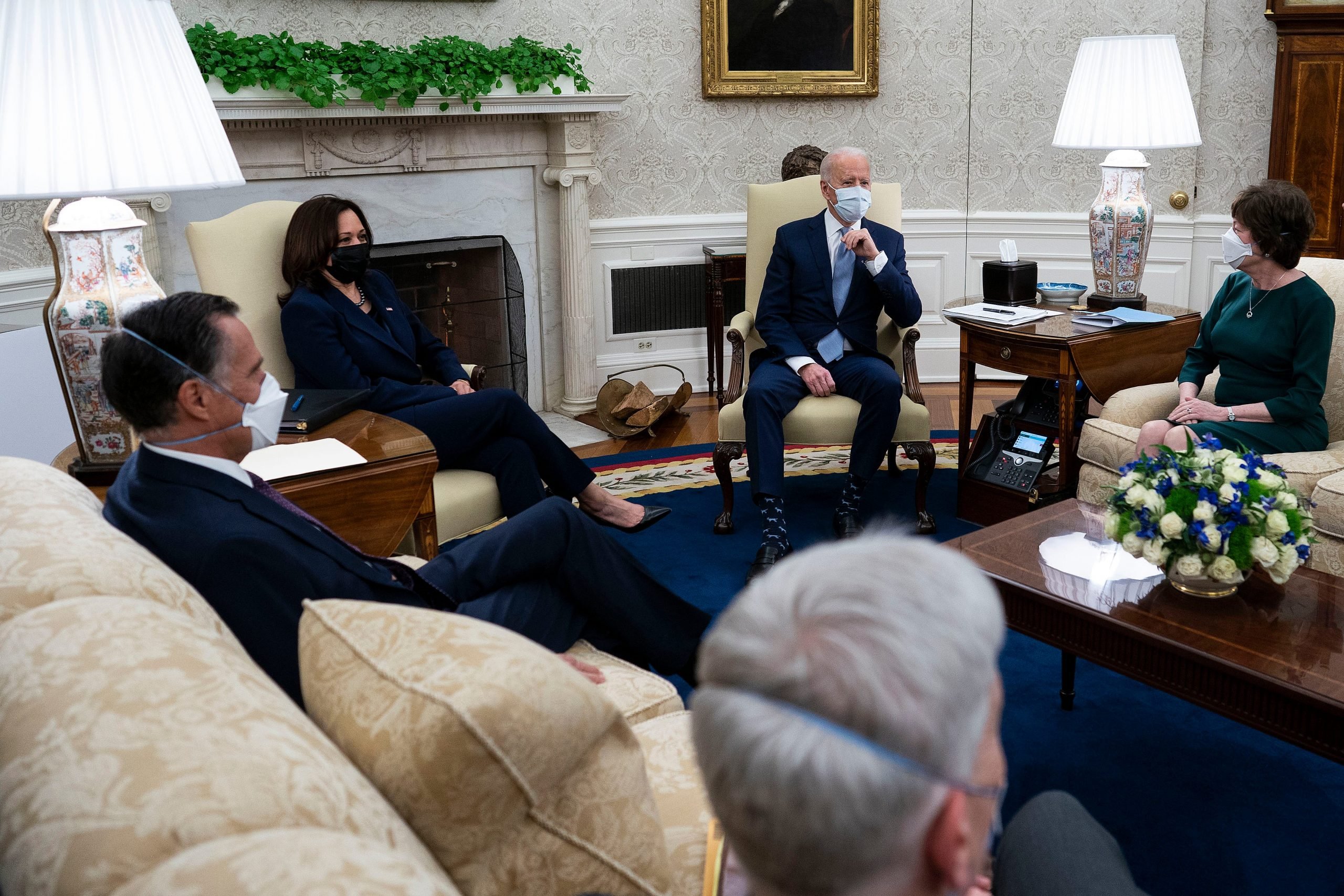
AP Photo/J. Scott Applewhite
- Republicans are battling for the “soul” of the GOP while at an ideological crossroads.
- Many conservatives remain deferential to Trump, while others are trying to move ahead.
- Cheney faced backlash for voting to impeach Trump, while conspiracy theorist Greene was applauded.
- Visit the Business section of Insider for more stories.
In August 2017, private citizen Joe Biden, dismayed by then-President Donald Trump’s response to the deadly “Unite the Right” rally in Charlottesville, Virginia, wrote that Americans “were living through a battle for the soul” of the nation.
As the 2020 Democratic presidential nominee, this belief was at the core of Biden’s candidacy, with him promising a sort of moral reckoning if elected.
Trump scoffed at now-President Joe Biden’s political message of uniting the country.
However, with Trump out of office, the majority of Republicans who pledged fealty to him for four years are undergoing their own soul-searching, especially in the wake of the January 6 Capitol riots.
The party is in wildly different places, with one side wanting to move past Trump and focus on policy matters with the new administration and the other side continuing to support the former president and Rep. Marjorie Taylor Greene of Georgia, the freshman congresswoman who for years has peddled a range of offensive conspiracy theories.
This chasm has been on full display since last month.
Traditional Republicans want accountability
On February 1, a group of 10 Republican senators, led by Sen. Susan Collins of Maine, met with Biden and Vice President Kamala Harris at the White House to discuss their $618 billion COVID-19 stimulus proposal, pared down from the $1.9 trillion proposal crafted by the Biden administration.
Their focus was on putting a GOP stamp on legislation that could very well pass with only Democratic votes.
"It was a very good exchange of views," Collins said after the meeting. "I wouldn't say that we came together on a package tonight. But what we did agree to do was follow up and talk further at the staff level and amongst ourselves and with the president and vice president on how we can continue to work together on this very important issue."
Senate Minority Leader Mitch McConnell of Kentucky has untethered himself from Trump. The pair worked together to install hundreds of conservative judges to the federal bench, but McConnell now reportedly never wants to speak with the former president again.
Then there are the 10 House Republicans who voted to impeach Trump for "incitement of insurrection" for his role in the Capitol riots. That group included Republican Caucus Chair Liz Cheney of Wyoming and Rep. Adam Kinzinger of Illinois, who has been vocal about condemning the former president.

Pool/Getty Images
On February 3, Cheney survived a caucus vote to retain her leadership position for the impeachment vote, while in the same meeting, Greene was given a standing ovation by roughly half of the GOP caucus.
Kinzinger, who said last week that Greene is "not a Republican," told Insider's Anthony L. Fisher that members will have to steer the party back to its core conservatism.
"We have to fight like hell to restore the soul of [the Republican Party] and I'm willing to go down doing that because I think when history looks back at this moment, it's not going to be the people that voted to not certify the election that'll be written about in history books," he said.
Members on the other side of the Republican equation, however, have a vastly different vision for the party.
House conservatives still largely embrace Trumpism
Greene apologized for promoting the QAnon conspiracy during the February 3 GOP meeting, but has gained strong support among many conservatives for her outspoken beliefs. It is unclear if she has truly renounced the ideas that she has espoused for several years now, which included casting doubt on the 2012 shooting at Sandy Hook Elementary School in Newtown, Connecticut and the 2018 shooting at Marjory Stoneman Douglas High School in Parkland, Florida.
House Minority Leader Kevin McCarthy of California, who said last year that "there is no place for QAnon in the Republican Party," now apparently has minimal knowledge of the conspiracy theory.
"Denouncing Q-on, I don't know if I say it right, I don't even know what it is," he said on February 3.
McCarthy, who called Greene's online posts "disturbing," spoke with the congresswoman about her statements, which included calls for violence against Democratic colleagues.
During the February 3 caucus meeting, McCarthy backed Cheney staying in leadership, but declined to remove Greene from her House committees.
Democrats, who implored McCarthy to take action against Greene, are planning to remove her from her committee assignments on Thursday.

Erin Scott/Pool via AP
House Republicans, emboldened by November's electoral gains that produced a narrow 222-211 Democratic majority, are mostly sticking with Trump. Many GOP members have declined to criticize Greene's comments.
McCarthy is emblematic of the party's remaining commitment to Trump - just last week, he was photographed with the former president at his Mar-a-Lago club in Florida.
Rep. Matt Gaetz of Florida, a Trump loyalist who was angered by Cheney's vote to impeach the former president, recently traveled to her home state to criticize her vote.
"We are in a battle for the soul of the Republican party, and I intend to win it," he said to a pro-Trump crowd in Wyoming. "You can help me break a corrupt system. You can send a representative who actually represents you, and you can send Liz Cheney home."
Will both sides be able to reconcile?
After the Senate impeachment trial that is set to take over the Capitol starting February 9, the final vote, which is not expected to result in a conviction for Trump, will be the first step in the party figuring out what it wants to represent to Americans.
For Trump to be convicted, all 50 Democratic senators and 17 Republicans would need to be in lock-step about the former president's role in provoking the deadly Capitol insurrection. But 45 Senate Republicans voted last week to declare the trial unconstitutional, all but ensuring that Trump will be acquitted.
Many GOP members are also thinking about 2024 in the event that Trump decides to run for president again and are loath to aggravate conservative voters who continue to believe that Trump won the 2020 presidential election.
Members like McConnell, Kinzinger, and Sen. Mitt Romney of Utah want to steer the party back to its traditional conservative disposition, but McCarthy and Gaetz's in-your-face brand of conservatism is where many members feel the "soul" of the party should belong.
While Biden is aiming to bridge the political divides throughout the country, the GOP will have to confront their own deep fissures or Trump will continue to dominate the party.